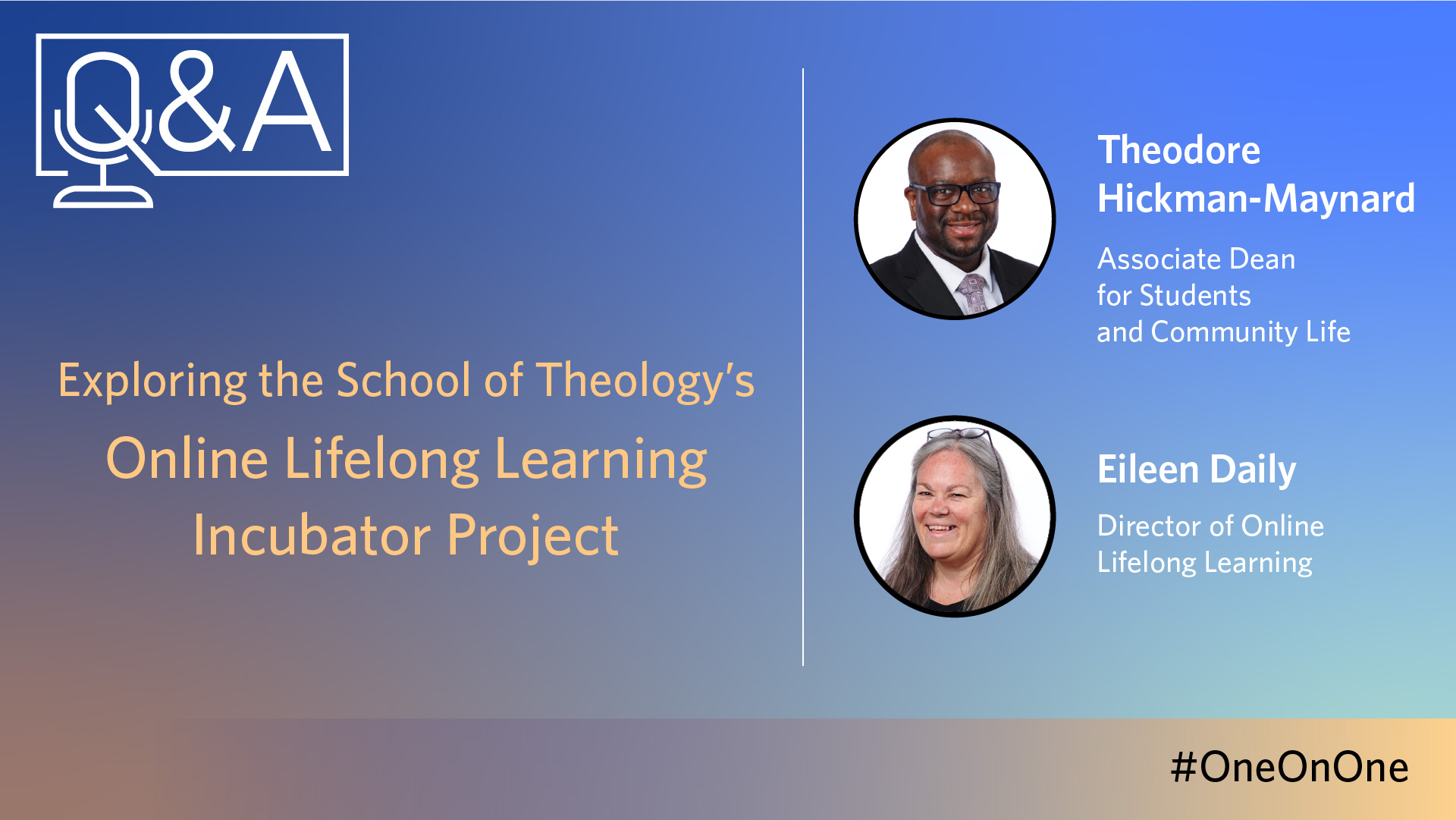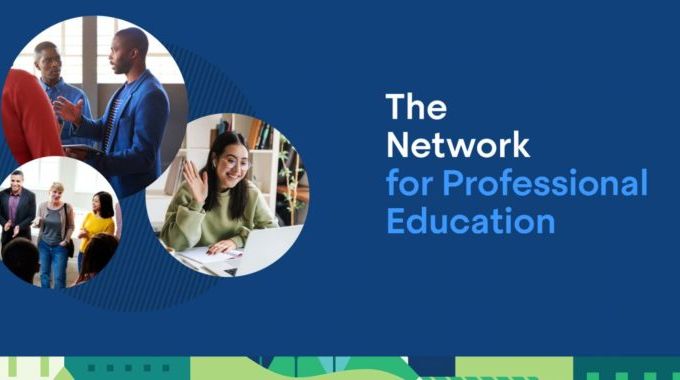Incubator Q&A with STH’s Theodore Hickman-Maynard & Eileen Daily

"Digital learning initiatives are happening across the BU campus. This Q&A series highlights innovative ideas, collaborative thinking, cutting-edge perspectives and those leading the digital teaching and learning charge."
In 2019, a team of four Boston University’s School of Theology (STH) visionaries—Theodore Hickman-Maynard, Eileen Daily, Kimberly Macdonald, and Andrew E. Kimble—set out to develop an online lifelong learning program where they would consolidate its current online resources and create mini-courses for alums and other faith-based leaders, and spiritual growth groups.
With the assistance and support of DL&I’s Digital Education Incubator, the vision successfully turned reality. During the spring of 2020, the STH Online Lifelong Learning pilot project was launched.
“STH always wanted a Online Lifelong Learning program to serve the spiritual and practical lives of STH alums and similarly situated leaders in faith-based and other not-for-profit organizations,” says Theodore Hickman-Maynard, associate dean for Students and Community, describing the groups’ goals and objectives.
According to Eileen Daily, director of STH Online Lifelong Learning, the pilot has three primary objectives.
“First, we wanted to offer practical mini-courses for our alums and other people in the faith-based world. Second, we wanted to offer spirituality groups so that the people who usually lead such things could relax and participate in them without having to be ‘on’,” she says. “And finally, we wanted to create a library of video resources that leaders could use when they are offering programming in their own worlds.”
A significant feature of the new, two-and-a-half-year pilot program is the flexibility to shape new course content as needs arise, and to have all courses and groups designed for remote learning. “The freedom to pivot and adapt our offerings on short notice to participate in the pandemic response is one factor that distinguishes this kind of learning from traditional semester-long offerings,” adds Daily.

DL&I connected with Theodore Hickman-Maynard and Eileen Daily to discuss the current climate and overall need for online learning programming; project milestones and timelines, and how STH went from idea to program launch and management.
Please describe the current learning climate for spiritual groups and how the STH Online Lifelong Learning program is adapting.
Hickman-Maynard: Arguably, our faith-based community is more in need of accessible learning opportunities today than they were in January. How do religious leaders make theological sense of their work in this context? What practical skills do pastors/leaders need to adapt and pivot in this new world? Those are the kinds of skills we want to offer and conversations we want to facilitate. At the same time these people are hurting, their expectations of their lives or vocations have been upended in many cases. These are the real spiritual needs we want to serve. Our goal is to stay responsive to such needs.
Please share a brief overview of the pilot project timeline. What project milestones have been met and what’s in the pipeline?
Daily: It’s funny how a pandemic can alter a timeline. We went into spring 2020 with four mini-courses and two spirituality groups on the docket. By the time we got the paywall in place, the pandemic had forced a bunch of social changes and all of the planned mini-courses and groups became moot. We adapted to the situation and developed two more relevant mini-courses and a group reflecting on the work of Howard Thurman. We had originally planned to pause though the summer before launching another set in fall 2020 but because the spring pilot had been smaller than anticipated, we decided to extend that pilot. We have added mini-courses on discerning vocation and asset mapping and spirituality groups on Afrofuturism, the poetry of Poet Laureate Joy Harjo, and African-American films. We had at one point anticipated that we would have new programming identified three or four months before a term began but to be responsive to the pandemic, to the rising consciousness of systemic inequalities, and to economic hardship is requiring a much shorter turnaround time.
How will you measure program success?
Daily: Program success will look different at different stages. In this early stage, we need to be sure that the systems all work, participants can get the materials they need, and the models of learning are appropriate to the audience. Later, we will want to be sure that the content and process are hitting the sweet spot for our learners. Once we have a better sense of what is serving the needs of our target audience, we will be in a better place to do the kind of titling process that will get us to a name that captures the elegant relevance of the now-clunky-sounding STH Online Lifelong Learning Program.
Describe your team’s experience building the Online Lifelong Learning program and working with DL&I’s Digital Education Incubator.
Daily: The Digital Education Incubator that is part of BU’s Digital Learning & Innovation office has been an incredible support to us in terms of ideas, refinements, and practicalities.
For BU faculty and staff with an innovative digital education idea, what advice do you offer?
Daily: I encourage any other BU people to get in touch with the people at the Incubator even if their ideas are still in very nascent stages. The Incubator can get you from vague fuzzy clouds in your head to an operating program. Our summer offerings have attracted about 75 participants.
 About the Author: Maureen McCarthy was the Communications Manager for Boston University’s Digital Learning & Innovation and Editor of DL&I News at the time of publication.
About the Author: Maureen McCarthy was the Communications Manager for Boston University’s Digital Learning & Innovation and Editor of DL&I News at the time of publication.


